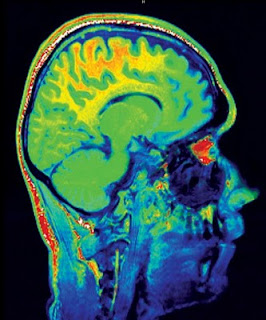Brain regions that may play a role in the development of childhood anxiety have been pinpointed by U.S. researchers.The findings could lead to new methods of early detection and treatment for at-risk children, according to study leader Ned. H. Kalin, chair of psychiatry at the University of Wisconsin-Madison School of Medicine and Public Health. "Children with anxious temperaments suffer from extreme shyness, persistent worry and increased bodily responses to stress. It has long been known that these children are at increased risk of developing anxiety, depression and associated substance abuse disorders," Kalin said in a university news release. He and his colleagues scanned the brains of 238 young rhesus monkeys and found that increased activity in brain regions called the amygdala and the anterior hippocampus predicted anxious temperament.
Previous research led by Kalin found that anxious young monkeys are similar to anxious children. "We believe that young children who have higher activity in these brain regions are more likely to develop anxiety and depression as adolescents and adults, and are also more likely to develop drug and alcohol problems in an attempt to treat their distress," he said. The findings, published in the Aug. 12 issue of Nature, suggest it may be possible to prevent children from developing full-blown anxiety. "My feeling is that the earlier we intervene with children, the more likely they will be able to lead a happy life in which they aren't as controlled by anxiety and depression. We think we can train vulnerable kids to settle their brains down," Kalin said.
You have read this article alcohol /
Brain /
Drug /
hippocampus
with the title Brain Research May Help Predict Anxiety, Depression in Young. You can bookmark this page URL http://aganaktismenoi-volos.blogspot.com/2010/08/brain-research-may-help-predict-anxiety.html. Thanks!














No comment for "Brain Research May Help Predict Anxiety, Depression in Young"
Post a Comment